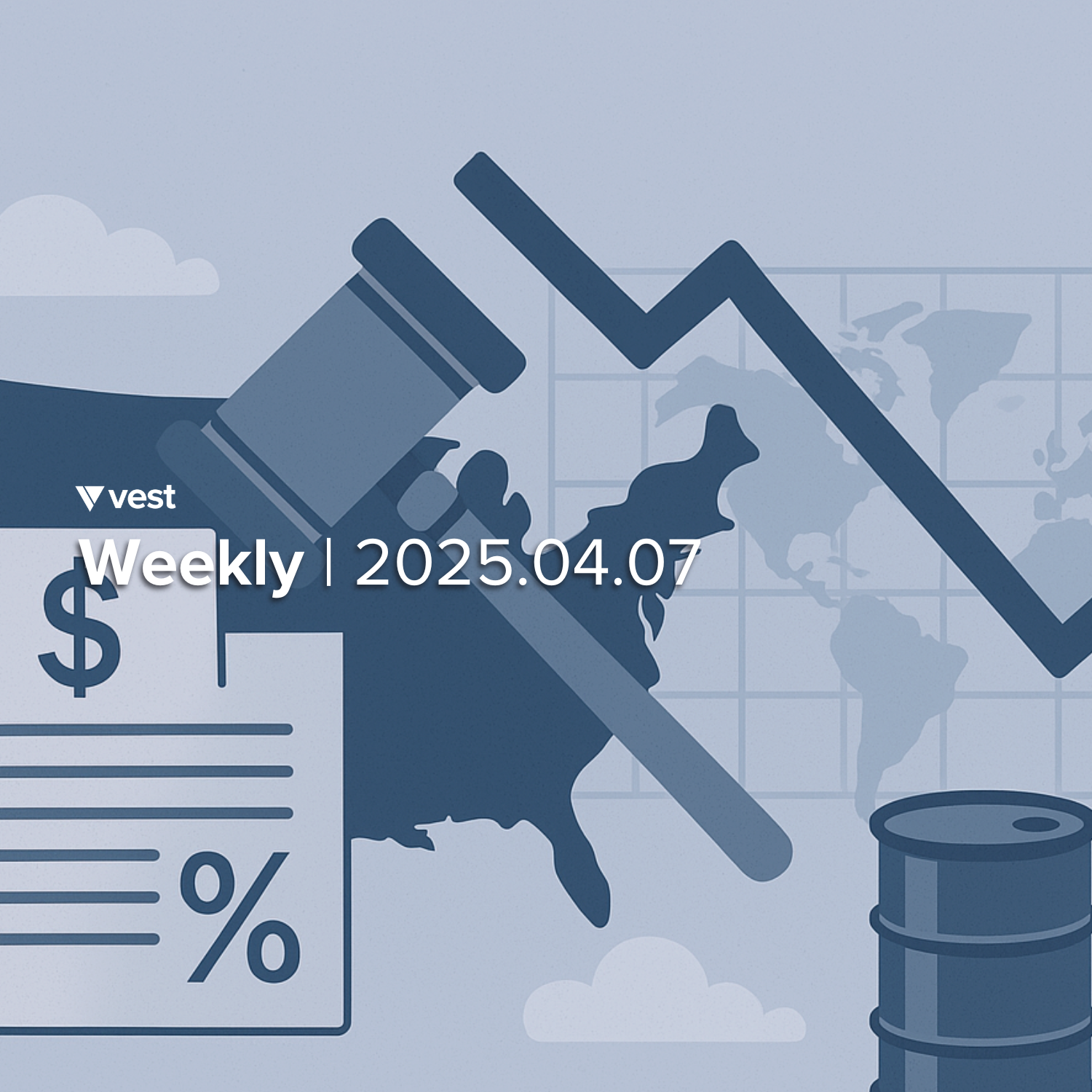A Decision That Shook the Financial World
Global markets reacted in unison to one major decision from the United States: large-scale tariffs on imports. What started as a domestic economic move quickly spilled over into stock markets, commodities, and investor confidence worldwide.

This week, a single political move was enough to shake global markets: the U.S. government announced sweeping new tariffs, triggering stock market drops, international warnings, and renewed trade tensions. In this edition, we break down what happened—and how it’s impacting investors.
Weekly highlights
U.S. imposes a 10% tariff on all imports, with higher rates for China and the EU.
S&P 500 enters bear market territory amid heightened volatility.
Oil prices fall to their lowest level since 2021.
IMF warns the tariffs pose a “significant risk” to global growth.
The trigger: industrial ambition behind new tariffs
On April 2, President Donald Trump announced a broad set of trade tariffs, including:
A 10% general tariff on all imports
34% on Chinese goods
20% on imports from the European Union
25% on vehicles and auto parts
While aimed at reviving domestic manufacturing, the announcement sparked immediate concern in the markets. The threat of international retaliation and rising prices on imported goods raised inflationary risks and market uncertainty.
Market response: swift and sharp
Markets reacted decisively:
The S&P 500 dropped over 6%, officially entering bear market territory (down more than 20% from its recent high).
The Dow Jones and Nasdaq also saw significant losses.
Sectors most affected included automotive, tech, and manufacturing.
As anxiety spread, investors flocked to safe-haven assets like U.S. Treasury bonds (sending yields lower) and the Japanese yen.
Oil prices fall on global demand concerns
Oil markets reflected fears of a global economic slowdown:
Brent crude fell to $62.9 per barrel
WTI dropped to $59.4 per barrel
These are the lowest prices seen since 2021, driven by expectations of declining demand.
IMF warning and recession risks
Kristalina Georgieva, Managing Director of the IMF, stated:
“The new U.S. tariffs represent a significant risk to global economic growth.”
The IMF called for dialogue and de-escalation, warning that prolonged trade disputes could lead to a recession. Major banks also raised their recession probabilities for the U.S. to 45%.
Final thoughts
This week reminded us how one decision can ripple across the financial world. U.S. trade policy is not only affecting domestic markets, but also shaking investor confidence, commodity prices, and global economic flows.
In times like this, investors may want to stay informed, maintain diversified portfolios, and monitor global reactions from China, the EU, and other key players.
Sources: El País, Kiplinger, The Guardian, AP News, HuffPost, Cadena SER.
For informational purposes only. Not investment advice. See our Social Media Disclosure for more.